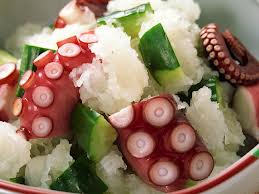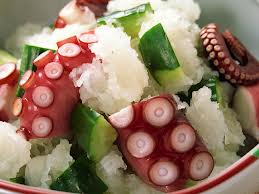By Andris Vassilios, Dietitian - Nutritionist:
The period of fasting nutritionally, is an opportunity for a natural detoxification of the body from the toxins of animal products, saturated fats and cholesterol. But many of us are afraid to fast so that we do not gain weight because we believe that fasting does not "satisfy" us, as a result of which we constantly snack to satisfy our "hunger".
The truth is that if we do not know some things about the combinations we need to do but also the calories contained in some fasting foods we can actually "escape" and increase our weight.
The benefits of fasting:
We consume plenty of vegetables and fruits that are rich in vitamins (A, C, E) folic acid, trace elements, antioxidants and fiber. On the contrary, it is low in saturated animal fats. Legumes in turn are the 'meat' of fasting. They provide us with complex carbohydrates and vegetable proteins with negligible fat.
- Reduces blood cholesterol and triglyceride levels
- Helps better regulate sugar and blood pressure
- Protects against various types of cancer
- It has anti-aging properties
- Favors the better functioning of the intestine
Tips for the fasting period:
- Do not forget to eat 3 to 5 meals a day. It helps to saturate and regulate hunger between meals and better regulates calorie intake, since food is introduced into the body in a balanced way at regular intervals.
- Eat fruits and vegetables. Offers vitamins and minerals
- Always combine our food with a salad either with raw vegetables or with boiled or both. The fiber contained in vegetables increases satiety and delays digestion so that we feel full for longer. It is good to start our meal with a few salad forks and then eat our food so we will be full more easily.
- Choose foods that contain protein such as squid, octopus, shrimp and other seafood that provide us with protein of high biological value, which is even more digestible than meat.
- There are also plant foods that contain protein such as nuts (almonds, peanuts, walnuts), legumes, soy, rice, corn and sesame.
- Pay attention to the oil we add to our food and salad as well as the olives we will eat. The 8 black ripe or 10 green olives give us about 45 calories just as 1 teaspoon of olive oil (or other vegetable oil) gives us about 45 calories.
- Pay attention to the amount of bread or nuts that we will eat with our food. It is good to limit ourselves to 1f. bread or a small nut (30g) and avoid dipping them in oil.
- Consume oils such as e.g. green beans, okra, etc. to offer you flavor, fiber and valuable vitamins
- Do not overdo it with fruits, because they also get fat. Every day 2-3 servings of fruit are enough, depending of course on the energy requirements of everyone.
- Avoid too many fries. Do not eat them daily and do not exceed one portion of a restaurant per week.
- Be careful of the amounts you consume as many times due to hunger you can eat more than you need
- To make our own fasting sweets to calculate the sugar we will put. Instead of white sugar we can use honey or brown sugar which have a higher nutritional value. But their calories are exactly the same. If we want to save calories we can use sugar substitutes.
- To satisfy our hunger with options that have few calories. If we are still hungry we can eat different vegetables such as raw carrot or cucumber or combine them with a low-fat yogurt or make a salad and combine it with some low-fat cheese. We can also drink beverages (tea, cocoa) that are both good for us and help to "trick" our hunger.
- Let's not forget that "excellent in every way". That is, the fact that a food can be "healthy" and "nutritious" does not mean that we can eat it without fear in large quantities and that it will NOT make us fat. Excessive energy intake (calories) above what we consume daily means storing excess energy in the form of fat (obesity). So be careful !!!
Andri Vassiliou
Dietitian Nutritionist

